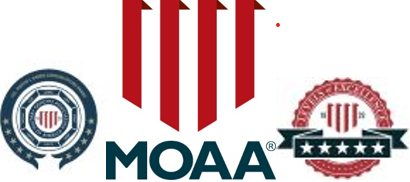Why we created a new 501(c)3
The Columbia River Chapter is still a 501(c)19 nonprofit war veterans organization, however donations may soon no longer be tax deductible. Per the IRS: If 75 percent of our members are war veterans and substantially all the other 25 percent are widows, spouses, etc. then we qualify as a 501(c)19 nonprofit war veterans organization. However, the IRS adds an additional requirement in order for donations to be tax deductible on Federal Income taxes. That requirement is that 90 percent of our members must have served during periods of conflict (war) as defined by the IRS (this is the reason we asked for your service dates) in order for donations to be tax deductible.
Since auxiliary (now called surviving spouse) members do not count towards this 90 percent threshold it is becoming increasingly difficult for the chapter to maintain this 90 percent requirement and thus continue to offer tax deductibility for donations.
For this reason, we created a new separate 501(c)3 nonprofit called “Columbia River MOAA Foundation” (or “CRMF” for short). We received a favorable determination letter from the IRS with an effective date of August 13, 2015 classifying the CRMF as a public charity stating that the CRMF is “qualified to receive tax deductible bequests, devises, transfers or gifts.” (please see the Donate Tab for our EIN)
One limitation of a 501(c)3 public charity per IRS rules is “A public charity is not permitted to engage in substantial legislative activity (commonly referred to as lobbying). An organization will be regarded as attempting to influence legislation if it contacts, or urges the public to contact, members or employees of a legislative body for purposes of proposing, supporting or opposing legislation, or advocates the adoption or rejection of legislation.”
Therefore, the Columbia River Chapter will continue to maintain its status as a 501(c)19 war veterans organization. This means the chapter can continue to promote legislation (i.e., engage in substantial legislative activity (commonly referred to as lobbying), but cannot offer tax deductibility of donations. The CRMF, on the other hand, can offer tax deductibility of donations, but NOT engage in lobbying activities as defined above.
Although the CRMF is a separate entity with a separate set of officers / board of directors, we codified in the By-Laws that the CRMF answers to the chapter board. Every member of the chapter (including Surviving Spouses) is a member of the CRMF and has a vote at the CRMF annual meeting. Since the CRMF is a subsidiary of the chapter, the chapter board controls what funds go to the CRMF from the chapter and approves CRMF disbursements.
To learn how to make a donation please see the “Donate” tab.
